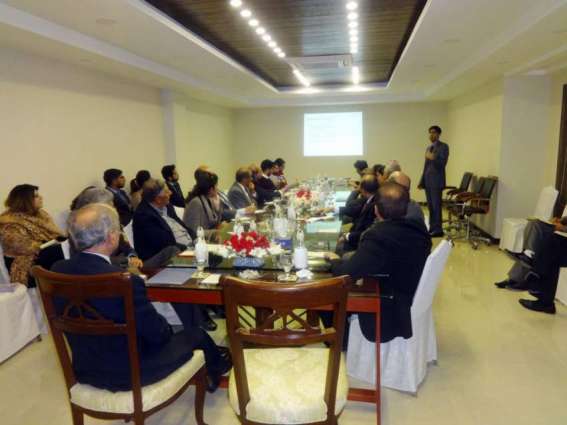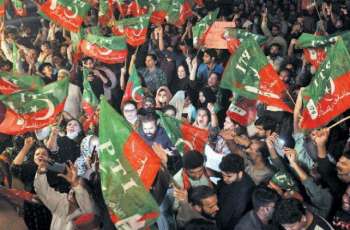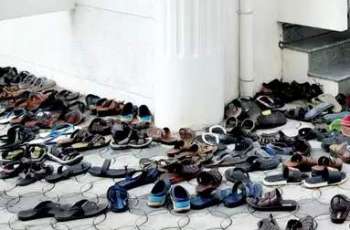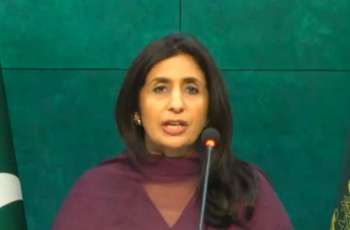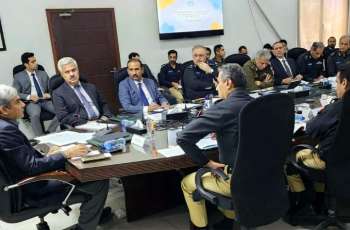The Center for International Strategic Studies Islamabad, hosted Dr. Chrisopher Clary for a round table discussion on "Changing Nuclear Dynamics in South Asia" here on Wednesday.
Islamabad, (Pakistan Point News - 13th Jun, 2018) : The Center for International Strategic Studies Islamabad, hosted Dr. Chrisopher Clary for a round table discussion on "Changing Nuclear Dynamics in South Asia" here on Wednesday. Dr. Christopher Clary, an Assistant Professor of Political Science at the State University of New York in Albany. He spoke on the changes in Pakistani and Indian nuclear doctrines and postures as well as development in their capabilities since 1998.
Dr. Clary began his talk by acknowledging that the 20th anniversary of India and Pakistan's nuclear tests provided an opportunity to look at the trajectory of doctrinal and technological developments undertaken by both states, which has been "quite dramatic", according to him. Dr. Clary talked about India's increasing interest in counter-force, enhanced Intelligence, Reconnaissance and Surveillance (ISR) capabilities, emphasizing that New Delhi has lately seriously started contemplating damage limitation counter-force strategies vis-�-vis Pakistan which destabilize South Asian deterrence.
Since the last five years, this shift from counter-value to counter-force is fairly evident. These capabilities are a result of successful missile tests at various lofted and depressed trajectories for many years. The change needed serious attention as it is a drastic doctrinal shift and can't simply be dubbed as a whim of India's former National Security Advisor, Shiv Shankar Menon. Dr. Clary posited that compared to 1998, India's nuclear forces are on a higher level of readiness, owing to canisterized and mated nuclear weapons systems.
Making an observation about Pakistan, he stated that in earlier years, Pakistan claimed that it would use nuclear weapons as last resort, however following Cold Start doctrine's operationalization, Pakistani policy practitioners started saying that nuclear weapons would neither be used as a trip wire nor as a last resort, creating ambiguity on the doctrine front. Commenting on India's Cold start doctrine, Dr. Clary stated that earlier the world was skeptic about the Cold Start doctrine, given India's earlier denial, however now India has clearly accepted that it has a doctrine with which it wants to initiate conflict below the nuclear threshold.
Moreover, he said, the growing nuclearization of the Indian Ocean was a new phenomenon as opposed to the last decade. He also said that nuclearization of the Indian Ocean isn't necessarily a stabilizing factor for the region. He also shed light to India's BMD capabilities as one of the factors of the changing dynamics in the South Asian strategic scene that might lead to arms race. The round table was well attended by former ambassadors, technocrats, members of academia and civil society. An animated discussion followed the talk lasting over an hour. Executive Director, CISS, Ambassador Naqvi in his concluding remarks thanked Dr. Christopher Clary and the participants for a fruitful discussion.
